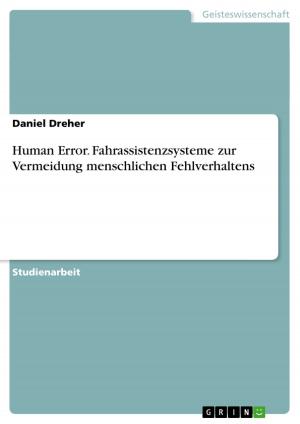Stateless in the Dominican Republic. Explaining, Assessing and Evaluating Ongoing Violations of Human Rights
Nonfiction, Reference & Language, Law, Constitutional| Author: | Pauline Kuss | ISBN: | 9783656979074 |
| Publisher: | GRIN Verlag | Publication: | June 12, 2015 |
| Imprint: | GRIN Verlag | Language: | English |
| Author: | Pauline Kuss |
| ISBN: | 9783656979074 |
| Publisher: | GRIN Verlag |
| Publication: | June 12, 2015 |
| Imprint: | GRIN Verlag |
| Language: | English |
Seminar paper from the year 2015 in the subject Law - Public Law / Constitutional Law / Basic Rights, grade: noch zu erwarten, Tilburg University, language: English, abstract: Nationality can be seen as the rights to have rights and is protected by the Universal Declaration of Human Rights. However do various scenarios exist which might leave a person stateless. Being without a nationality comes with an increased vulnerability to violations of various personal rights. In the Dominican Republic thousands of Dominicans of Haitian descent were recently stripped off their nationality. This report will explain and assess the situation, shine a light on the struggles those individuals have to face and evaluate possible solutions that could be undertaken in order to address the problem. In order to fully understand the nature of the statelessness issue of the Dominican Republic it is necessary to turn back to the year of 2004 in which the country started to gradually change its citizenship laws. In the 1940s the need for cheap labour called many Haitians to the Dominican Republic where the immigrants enjoyed the benefits of a constitutional right to Dominican citizenship to everyone born inside the country irrespectively of the migration status of the parents. Originally this jus soli citizenship knew only two exceptions: Diplomats and children born to parents 'in transit' - a term legally defined as 'being within the country for ten days or less'. But in 2004 the new Migration Law 285/04 de facto revoked the promise of birthright citizenship for Dominicans of Haitian descent by broaden the definition of 'in transit' to henceforward also include nonresidents - including all migrant workers who had been working and living in the country for years, leaving them unable to register their Dominican-born children as Dominican citizens henceforth.
Seminar paper from the year 2015 in the subject Law - Public Law / Constitutional Law / Basic Rights, grade: noch zu erwarten, Tilburg University, language: English, abstract: Nationality can be seen as the rights to have rights and is protected by the Universal Declaration of Human Rights. However do various scenarios exist which might leave a person stateless. Being without a nationality comes with an increased vulnerability to violations of various personal rights. In the Dominican Republic thousands of Dominicans of Haitian descent were recently stripped off their nationality. This report will explain and assess the situation, shine a light on the struggles those individuals have to face and evaluate possible solutions that could be undertaken in order to address the problem. In order to fully understand the nature of the statelessness issue of the Dominican Republic it is necessary to turn back to the year of 2004 in which the country started to gradually change its citizenship laws. In the 1940s the need for cheap labour called many Haitians to the Dominican Republic where the immigrants enjoyed the benefits of a constitutional right to Dominican citizenship to everyone born inside the country irrespectively of the migration status of the parents. Originally this jus soli citizenship knew only two exceptions: Diplomats and children born to parents 'in transit' - a term legally defined as 'being within the country for ten days or less'. But in 2004 the new Migration Law 285/04 de facto revoked the promise of birthright citizenship for Dominicans of Haitian descent by broaden the definition of 'in transit' to henceforward also include nonresidents - including all migrant workers who had been working and living in the country for years, leaving them unable to register their Dominican-born children as Dominican citizens henceforth.















